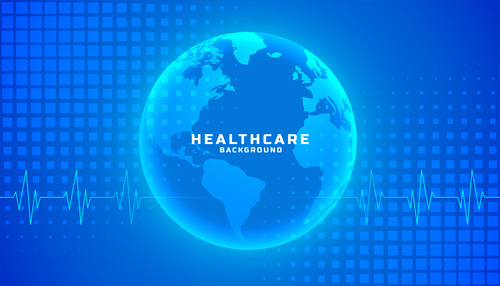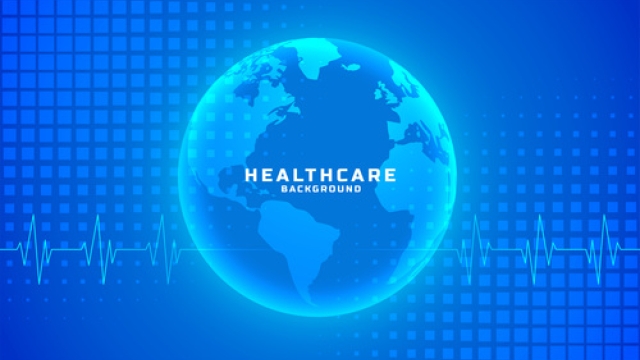Revolutionizing Patient Care: The Power of Healthcare CRM
In today’s digital age, where personalized experiences and effective communication are key, the healthcare industry is undergoing a powerful transformation. Enter healthcare CRM, a game-changing technology that is revolutionizing patient care. At the forefront of this revolution is MediCRM.ai, a cutting-edge, HIPAA-compliant customer relationship management platform specifically tailored for the healthcare sector. With its versatile capabilities and comprehensive features, healthcare CRM is paving the way for healthcare providers to enhance their marketing efforts, streamline operations, and ultimately improve patient experiences.
Healthcare marketing has always been a complex and delicate task, requiring deep understanding of patient needs and effective communication strategies. However, traditional methods often fall short in delivering the desired results. This is where healthcare CRM comes into play, bridging the gap between technology and patient-centric healthcare delivery. MediCRM.ai provides healthcare organizations with a unified and centralized platform to manage patient relationships, enabling them to tailor their marketing campaigns, effectively engage with patients, and deliver personalized care at every touchpoint.
With MediCRM.ai, healthcare providers can harness the power of data analytics to gain invaluable insights into patient preferences, behaviors, and trends. This information allows for more targeted and segmented marketing efforts, ensuring that patients receive the most relevant and impactful messages. Moreover, healthcare CRM empowers providers to automate processes and streamline workflows, maximizing operational efficiency and freeing up resources for more patient-focused activities.
In the ever-evolving landscape of healthcare, patient satisfaction is paramount. By leveraging the capabilities of healthcare CRM, healthcare organizations have the opportunity to transform patient care and elevate the overall experience. From personalized communications to streamlined operations, healthcare CRM is an invaluable tool that enables providers to cultivate stronger patient relationships and deliver exceptional care in the digital age.
Benefits of Healthcare CRM
Healthcare CRM, such as MediCRM, is revolutionizing patient care and bringing numerous benefits to the healthcare industry.
-
Improved Patient Engagement: Healthcare CRM enables healthcare providers to enhance patient engagement by streamlining communication and personalized interactions. Through targeted marketing campaigns and tailored messaging, healthcare organizations can effectively communicate with patients, empowering them to take an active role in their healthcare journey.
-
Efficient Patient Management: Utilizing a healthcare CRM platform like MediCRM allows healthcare providers to efficiently manage patient information, including medical history, appointment scheduling, and billing details. This centralized system reduces administrative burden, minimizes errors, and ensures seamless information flow among different departments.
-
Enhanced Marketing Strategies: Healthcare CRM facilitates data-driven marketing strategies by providing valuable insights into patient preferences, demographics, and behavior patterns. This enables healthcare organizations to segment their target audience, identify potential patients, and tailor marketing campaigns accordingly. With healthcare CRM, organizations can optimize their marketing efforts and achieve higher conversion rates.
By harnessing the power of healthcare CRM, organizations can offer personalized patient experiences, streamline operations, and drive growth within the healthcare industry.
Improving Patient Engagement
In the quest for better healthcare, patient engagement has emerged as a crucial component. With the advent of healthcare CRM solutions like MediCRM, healthcare organizations can now revolutionize how they engage with patients. By harnessing the power of technology and data-driven insights, healthcare CRM is transforming the patient experience and paving the way for improved outcomes.
One of the key benefits of healthcare CRM is its ability to personalize patient interactions. By capturing and analyzing patient data, healthcare providers can gain a deep understanding of their patients’ preferences, needs, and behaviors. This valuable information enables them to tailor their communication and care plans to each individual, fostering a stronger connection and enhancing patient engagement.
In addition to personalization, healthcare CRM also empowers patients to take an active role in managing their own health. Through secure patient portals, individuals can access their medical records, schedule appointments, request prescription refills, and even engage in virtual consultations. These self-service capabilities not only streamline administrative processes but also give patients greater control over their healthcare journey.
Furthermore, healthcare CRM opens up new avenues for proactive communication and outreach. Automated reminders for appointments, medication adherence, and preventive screenings can significantly improve patient compliance and adherence to treatment plans. By proactively reaching out to patients, healthcare providers can address potential issues before they escalate, reducing hospital readmissions and driving better health outcomes.
As healthcare CRM continues to evolve, patient engagement will remain at the forefront of its impact. By leveraging technology and data to personalize care, empower patients, and drive proactive communication, healthcare CRM is revolutionizing patient care and accelerating the path towards a healthier future.
Enhancing Care Coordination
Effective care coordination is crucial for providing high-quality healthcare services. With the advent of healthcare CRM platforms like MediCRM.ai, healthcare organizations now have a powerful tool to streamline and enhance their care coordination efforts.
By utilizing healthcare CRM, healthcare providers can centralize patient information, making it easily accessible to all members of the care team. This level of accessibility ensures that everyone involved in a patient’s care has the most up-to-date information, allowing for better coordination and communication among healthcare professionals.

Additionally, healthcare CRM enables real-time collaboration among different departments and specialties, further improving care coordination. Through shared calendars, task assignment features, and direct messaging capabilities, healthcare CRM facilitates seamless communication and minimizes delays in patient care.
Furthermore, healthcare CRM platforms like MediCRM.ai often integrate with other healthcare systems, such as electronic health records (EHR) and appointment scheduling software. This integration eliminates the need for manual data entry and reduces the risk of errors, saving valuable time and resources.
In conclusion, healthcare CRM has revolutionized care coordination by providing healthcare organizations with a centralized platform for managing patient information, enabling real-time collaboration, and integrating with existing healthcare systems. With the power of healthcare CRM, providers can enhance care coordination and ultimately improve patient outcomes.



